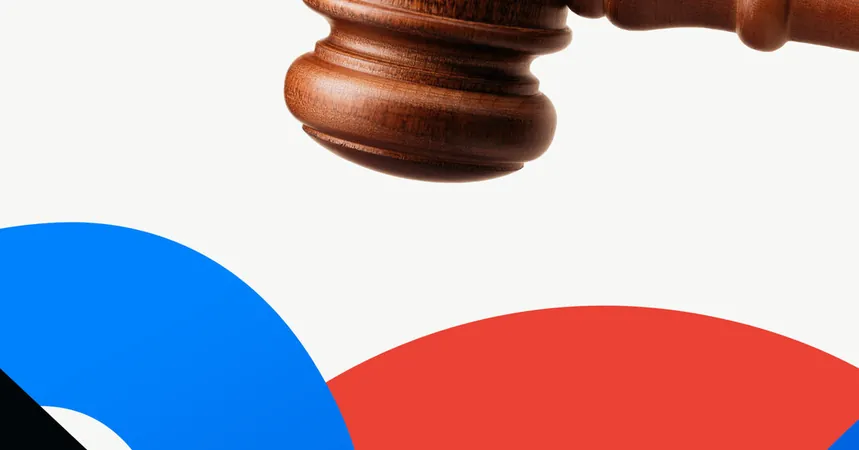
Is the Tech World on the Brink of a Massive Shakeup?
2025-04-15
Author: Lok
The Historic Battle Against Tech Titans Begins
Prepare for a seismic shift in the tech industry! For the first time in decades, courts are deliberating the possible breakup of colossal companies like Google and Meta, reminiscent of monumental antitrust cases from the past, such as the one against Microsoft.
The Spotlight Shifts to Meta and Google
In a groundbreaking antitrust trial, the Federal Trade Commission (FTC) argues that Meta has built an illegal monopoly in social media through its acquisitions of Instagram and WhatsApp. The FTC aims to force Meta to divest these popular platforms, setting the stage for a fierce legal battle ahead. Meanwhile, the following week, the Justice Department will present its case against Google, calling for a breakup to address its dominance in the internet search market.
Can Breakups Truly Foster Competition?
"Divestiture can be an effective remedy, depending on the harms identified," notes William Kovacic, a law professor at George Washington University. Yet, he cautions that breaking up these giants could be risky business—akin to performing surgery without knowing the long-term effects.
Historical precedents show mixed results. The notorious breakup of Standard Oil in 1911 initially increased competition, but its descendants evolved into new giants. Similarly, AT&T's breakup in 1982 opened the long-distance market to competition but raised questions over the effectiveness of such measures.
The Growing Wave of Antitrust Actions
As antitrust scrutiny intensifies, the stakes could not be higher. Recent lawsuits are not limited to Meta and Google; the Justice Department has also targeted Apple for its monopolistic practices and has filed against Amazon for anti-competitive tactics in online retail.
With these cases expected to drag on for years, the prospect of breaking up major tech companies looms larger than ever. The potential consequences of a court ruling could reshape not only the companies involved but also the future landscape of digital commerce and communications.
Meta's Defense: Is Competition Really Thriving?
During the opening statements, Mark Zuckerberg defended Meta, arguing that Instagram and WhatsApp have thrived under its ownership. He insists that competition is alive and kicking, pointing to the rapid rise of platforms like TikTok as evidence.
What's Next for Google?
In a separate but equally significant case, a judge recently found that Google unlawfully maintained its search monopoly. In response, the government has proposed radical remedies, including forcing Google to sell Chrome and either spin off Android or limit its services on Android devices.
Google has vehemently opposed these measures, labeling them extreme and warning of potential harm to consumers. The company is ready to appeal any adverse rulings.
A New Chapter in Tech Regulation?
Tim Wu, a law professor and former White House technology advisor, believes breakups may be the necessary remedy in the face of such overwhelming monopolistic power. As these trials unfold, observers are left wondering whether this is just the beginning of a new era of stringent regulation against the behemoths of Silicon Valley.
Stay tuned—this is a story that’s far from over!




 Brasil (PT)
Brasil (PT)
 Canada (EN)
Canada (EN)
 Chile (ES)
Chile (ES)
 Česko (CS)
Česko (CS)
 대한민국 (KO)
대한민국 (KO)
 España (ES)
España (ES)
 France (FR)
France (FR)
 Hong Kong (EN)
Hong Kong (EN)
 Italia (IT)
Italia (IT)
 日本 (JA)
日本 (JA)
 Magyarország (HU)
Magyarország (HU)
 Norge (NO)
Norge (NO)
 Polska (PL)
Polska (PL)
 Schweiz (DE)
Schweiz (DE)
 Singapore (EN)
Singapore (EN)
 Sverige (SV)
Sverige (SV)
 Suomi (FI)
Suomi (FI)
 Türkiye (TR)
Türkiye (TR)
 الإمارات العربية المتحدة (AR)
الإمارات العربية المتحدة (AR)